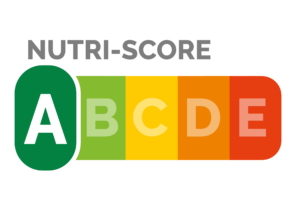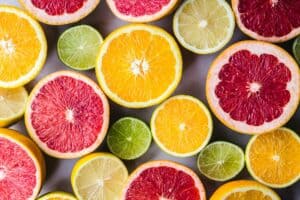The time for sugar reduction is now
Columns • Why should sugar reduction be high on the agenda of food and beverage producers? In this column, we examine three concrete factors that affect the market for sugar-reduced foods and beverages.
Future legislation and pressure from competitors create incentives to put sugar reduction high on the agenda. But not just any sugar reduction. It must be of natural origin. In recent years, the development and innovation of ingredients of natural origin have created competitive solutions.
Pressure from legislation and new market standards
Pressure can come from different sources. It could be new mandatory legislation or competitors moving positions forward and creating new market standards.
Since 2016, the following countries: Chile, Israel, Mexico, Peru and Uruguay have made it mandatory to put a warning labelling on foods that contain high levels of unhealthy ingredients. Whether we will see similar legislation in the EU remains to be seen. Instead of warning text on unhealthy products, perhaps sugar-reduced products will have a positive-sounding label, to help consumers pick them instead.
Much like the Swedish brand Felix, which recently launched a new type of labelling that will make it easier for consumers to make climate-smart and conscious choices. Products with the least climate impact are rewarded and given a highly visible label.
The comparison is somewhat lame, Felix’s action isn’t sprung from new legislation, it is about climate impact and not necessarily about unhealthy ingredients. But the motive is the same; to help consumers make informed choices.

A race to the top
Another form of pressure that often comes up is sugar tax. The issue of sugar taxes is a watershed among politicians and experts in the healthcare and food and beverage industry. Some believe that it can lead to the consumption of other junk and others believe that it has a great symbolic value and is important for that reason. Regardless of what one thinks in the actual issue, a sugar tax is something that has the potential to change the market for sugar-sweet products.
And whether it’s sugar tax, warning texts, labels or something else, these pressures can grow and lead to an intense race where everyone wants to be number one at sugar reduction overnight. In much the same way as now happening with electrification in the automotive industry. One way to get around this is to simply take the bull by the horns by gathering knowledge, investigating relevant options and getting started with high-quality sugar reduction.
Reducing sugar is important but just as important is what replaces sugar; it is about reducing sugar the right way.
But what does that mean?
Conscious consumers
The food and beverage industry is undergoing somewhat of a revolution as consumer preferences change and new innovative ingredients and solutions reach the market. Things that recently seemed unlikely are now a reality; Buying milk made from oats or vegetarian steaks doesn’t raise an eyebrow. Behind the scenes, among other things, are protein powder from insects and beverages with microalgae waiting to be tomorrow’s great success.
The same pace of innovation can be seen in the field of sugar reduction. Artificial sweeteners have a bad reputation, instead, consumers demand healthy ingredients of natural origin. They are welcome to contribute with function, for example, increased content of fibre or protein. This has accelerated the pace of innovation. The overall healthy trend that has been going on for a while has now been revived in due to the pandemic.
So, what are these ingredients? Let’s start off with stevia.
Sugar reduction of natural origin
Almost ten years ago, stevia was launched as a sweetener of natural origin. But it is really the sweet steviol glycosides that are extracted from the plant stevia that we have to thank. At first, only the steviol glycosides stevioside could be extracted. It was certainly sweet but also had a strong and bitter aftertaste. The boost came with Rebaudioside A (Reb A) which had a better taste profile and still is a big seller among steviol glycosides. Recently, improvements in extracting the really rare steviol glycosides with the greatest sweetness have been made – such as Rebaudioside M (Reb M).

Thaumatin and monk fruit
Other interesting sweeteners of natural origin are thaumatin and monk fruit. Thaumatin is currently approved as a sweetener and flavour enhancer and monk fruit is soon expected to become an approved ingredient in the EU.
But steviol glycosides, as well as thaumatin and monk fruit, are high-intensity sweeteners. In a complete sugar reduction, you usually have to replace the other properties of the sugar, for example, the bulk.
One ingredient that is growing in popularity is various forms of dietary fibres. In addition to being good for the stomach, fibres are also excellent ingredients in sugar reduction. Fibres create bulk and some varieties also come with some sweetness.
Summary
Let’s summarize the various insights:
- Pressure from legislation and competitors creates incentives for food producers to put sugar reduction high on the agenda.
- Consumers love sweetness but want to get rid of the negative aspects of sugar. They are also becoming more health-conscious and increasingly interested in ingredients of natural origin.
- The solution for food producers is to invest in the development and innovation of new solutions with natural origins but which also offer sweetness, taste and mouthfeel.
A complete solution
Developing a complete solution for sugar reduction on your own is difficult and comes with a hefty price. It requires skills that are not always available internally at food producers.
Bayn has developed a solution that is based on natural origin, which doesn’t compromise on taste and mouthfeel.
We call it sweetened fibres. It is a 1: 1 solution consisting of various forms of fibres, sugar alcohols and steviol glycosides. Sweetened fibres come in different varieties for different types of foods.
Contact us
Are you curious about sweetened fibres? Take a look at our range of services or contact us if you want to know more about how we can help you reduce sugar in a proper way.
Please, share this article if you liked it.
[et_social_share]





